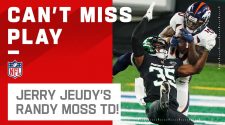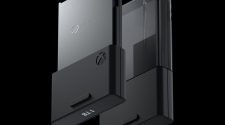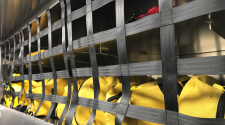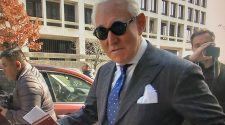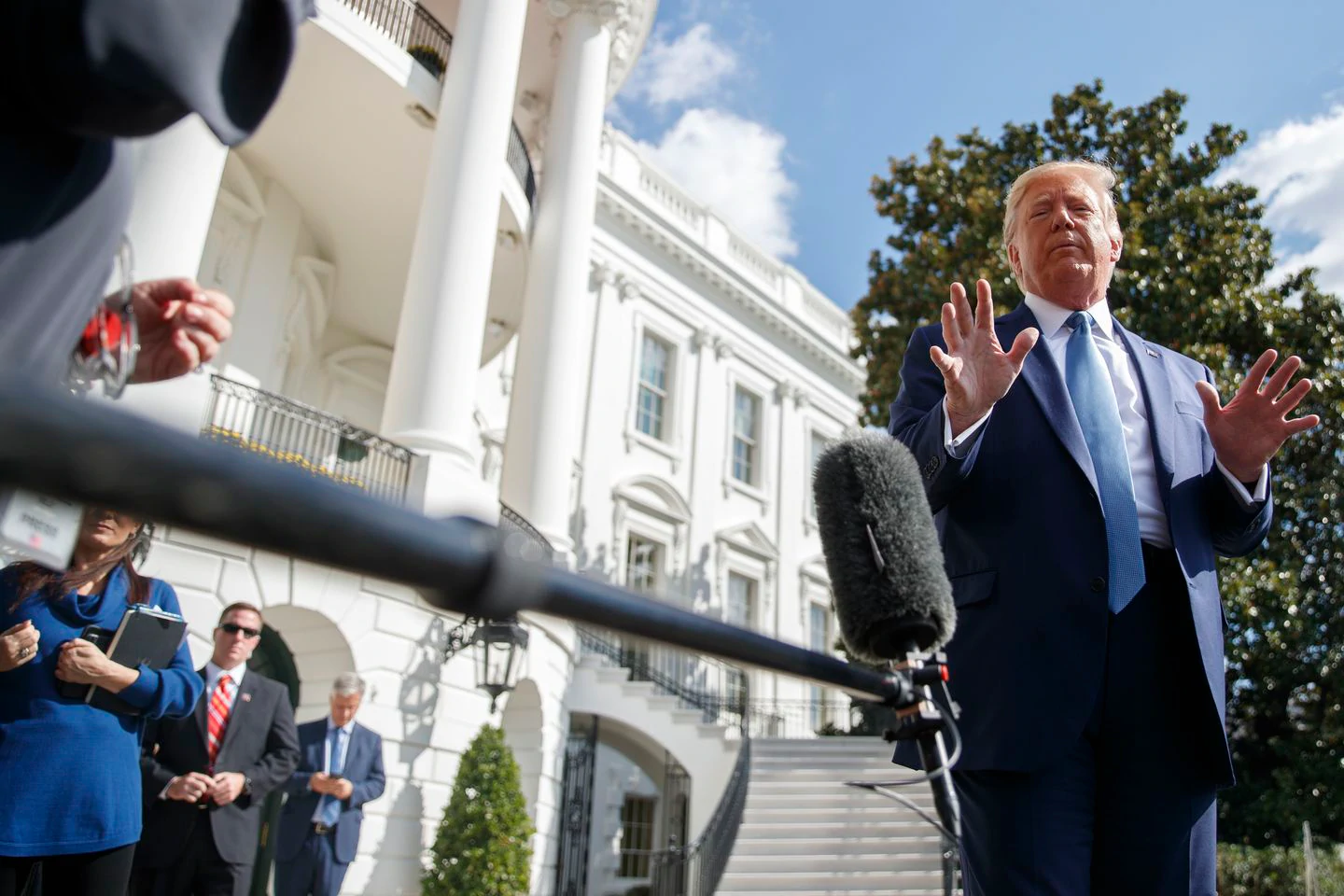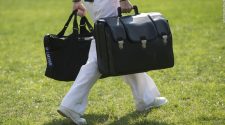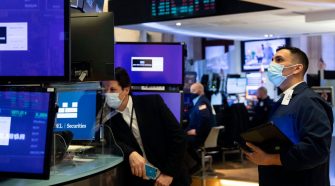The description of a July 25 phone call between Trump and the president of Ukraine, which formed the heart of the complaint and was still secret at the time the claim was filed in mid-August, matches a rough transcript of the call that the White House released a day before the complaint was made public.
The whistleblower’s assertion that records related to the phone call were transferred to a separate electronic system intended for highly classified material has since been
confirmed by White House officials.
And the whistleblower’s narrative of the events that led up to the call — including a shadow campaign undertaken by Trump’s personal attorney Rudolph W. Giuliani and the attempts of State Department officials to navigate his activities — have been largely confirmed by the text messages of three diplomats released Friday, as well as Giuliani himself in media interviews.
Independent evidence now supports the central elements laid out in the seven-page document. Even if they disregarded the complaint, legal experts said lawmakers have obtained dramatic testimony and documents that provide ammunition for the whistleblower’s core assertion: that the president of the United States used “the power of his office to solicit interference from a foreign country in the 2020 U.S. election.”
“Everything we’ve found to date validates the information . . . . It’s brilliantly effective. It really does function almost as a one-stop shop, investigative road map,” said Harry P. Litman, a former U.S. attorney in Pennsylvania who has represented other government whistleblowers.
“It’s a success story, as whistleblower complaints go,” said Litman, also a contributing columnist for The Washington Post.
Trump and his supporters have denied that he abused his office and said there is no evidence that the president engaged in a quid pro quo in which U.S. support for Ukraine was withheld in exchange for Ukrainian officials investigating his political rivals.
Despite the growing body of evidence supporting the whistleblower’s factual narration, Trump has continued to maintain that the description in the complaint is false or unsubstantiated.
“The so-called Whistleblower’s account of my perfect phone call is ‘way off,’ not even close,” Trump tweeted Saturday morning, adding that Democratic leaders “never thought I would release the transcript of the call. Got them by surprise, they got caught. This is a fraud against the American people!”
Earlier this past week, he tweeted, “The Whistleblower knew almost nothing, its 2ND HAND description of the call is a fraud!”
Trump’s critique came even though the president himself admitted nearly two weeks ago that he did indeed discuss former vice president Joe Biden, a political rival, with the Ukrainian president.
“The conversation I had was largely congratulatory, with largely corruption, all of the corruption taking place and largely the fact that we don’t want our people like Vice President Biden and his son creating to the corruption already in the Ukraine,” Trump told reporters then.
In fact, specific details the whistleblower provided about Trump’s call with Ukrainian President Volodymyr Zelensky can be found in the rough transcript of the conversation released by the White House.
Among them: that Trump pressured Zelensky to investigate former vice president Joe Biden and his son, and that the only specific instance of alleged corruption that Trump referenced on the call was the one pertaining to Biden.
The whistleblower also accurately described how Trump had asked the Ukrainians to pursue allegations that Russian interference in the 2016 election originated in Ukraine and to “turn over servers used by the Democratic National Committee (DNC) and examined by the U.S. cyber security firm CrowdStrike.”
According to the White House, Trump told Zelensky, “I would like you to find out what happened with this whole situation with Ukraine, they say CrowdStrike …,” adding, “The server, they say Ukraine has it.”
The whistleblower also said that Trump had explicitly asked the Ukrainians to meet or speak with Giuliani and Barr on these matters, referring to them “multiple times in tandem.”
“I will have Mr. Giuliani give you a call and I am also going to have Attorney General Barr call and we will get to the bottom of it,” Trump told Zelensky, according to the White House readout. “I’m sure you will figure it out.”
Mark Zaid, a lawyer for the whistleblower, said that the complaint itself noted that it was based both on the whistleblower’s personal knowledge and on information gathered from other officials.
Despite some Republican claims to the contrary, the law that protects government officials who step forward with knowledge of wrongdoing has never required their information be firsthand, he said.
“It’s always gratifying when the veracity of a client’s concerns are proven to be true,” he said. “It is obviously disappointing at times to see that something improper might have happened in the government, but there’s a sense of pride in seeing someone stand up for truth and integrity and in seeing the process work to address it.”
In the complaint, the whistleblower described other internal government deliberations that were not public at the time the document was filed.
For instance, he wrote that he had learned from other officials that Trump instructed Vice President Pence not to attend Zelensky’s inauguration in May. Current and former U.S. officials confirmed the president’s directive to The Post earlier this week.
In addition, the whistleblower asserted that in the weeks before Trump and Zelensky spoke, the Ukrainians were told that a phone call or meeting with the U.S. president — a highly sought-after mark of respect for the newly elected Ukrainian president — would depend on whether Zelensky was willing to “play ball” with Giuliani. And the whistleblower said that he had learned that Giuliani was engaging with Ukrainian officials and relaying messages between Trump and Kiev.
Giuliani has acknowledged that he conveyed Trump’s desire for Ukraine to investigate Biden to Ukrainian officials close to Zelensky.
“Your country owes it to us and to your country to find out what really happened,” Giuliani told a top aide to the Ukrainian president, according to an interview he gave The Post last month.
Late Thursday night, House investigators released a batch of text messages that buttressed in stark detail the whistleblower’s allegation that the administration was pressuring Ukraine to pursue the political investigations to get a White House meeting and foreign aid.
One message sent from Kurt Volker, then the special U.S. envoy to Ukraine, to an aide to Zelensky on July 25, hours before Trump and the Ukrainian president spoke, made the terms crystal clear.
“Heard from White House — assuming President Z convinces trump he will investigate/ ‘get to the bottom of what happened’ in 2016, we will nail down date for visit to Washington,” Volker wrote.
In August, the Ukrainian aide Andrey Yermak told Volker in a text that the Ukrainians would make the public announcements Trump and Giuliani sought in exchange for a meeting date with the U.S. president.
“Once we have a date, will call for a press briefing, announcing upcoming visit and outlining vision for the reboot of US-UKRAINE relationship, including among other things Burisma and election meddling in investigations,” Yermak wrote, making a reference to the Ukrainian gas company whose board included Hunter Biden.
Volker told House investigators in closed-door testimony Thursday that he was attempting to repair a relationship between Ukraine and the Trump administration that had been poisoned by unfounded claims Giuliani was feeding Trump.
After the whistleblower filed the complaint in August, the inspector general of the intelligence community assessed that its contents were “urgent” and “credible.”
Behind closed doors, inspector general Michael K. Atkinson has told House lawmakers that he made that assessment after interviewing other witnesses to events that the whistleblower described, according to people familiar with his testimony.
Part of the strength of the whistleblower complaint is that the document carefully flags when its author was sharing information provided by others, as well as instances in which the whistleblower was sharing his suspicions rather than what he knew to be true, said David Colapinto, co-founder of the National Whistleblower Center.
“I think whoever the whistleblower is understood the seriousness of the allegations, understood that it involved the White House, understood that it would get a lot of attention and prepared it carefully with that in mind,” he said.
For instance, the whistleblower wrote that he learned all U.S. security assistance to Ukraine was suspended in July. The Washington Post reported last month that the unusual directive to hold back the $400 million in money appropriated by Congress came from Trump himself.
The whistleblower wrote that the delay in the foreign aid “might have a connection with the overall effort to pressure the Ukrainian leadership.”
But, he added carefully, “I do not know definitively.”
The text messages released Thursday showed that other government officials believed there was a direct link.
“I think it’s crazy to withhold security assistance for help with a political campaign,” wrote Bill Taylor, chargé d’affaires to Ukraine, in September to Gordon Sondland, U.S. ambassador to the European Union.
Sondland responded that he thought Taylor was “incorrect about President Trump’s intentions” and that Trump had been “clear no quid pro quo’s of any kind” — before suggesting the two speak by phone instead of in writing.
Colapinto noted that it is not the job of the whistleblower to investigate or prove his own complaint. Under the law, a whistleblower need only be able to show he had a “reasonable belief” that a violation of law or regulation took place to receive protections from retaliation.
He said that training material about the whistleblower law for members of the intelligence community specifically includes examples where employees are told of wrongdoing by their a colleague. Employees are told they should flag the wrongdoing in such instances so it can be properly investigated.
“That’s how this is supposed to work,” he said. “The rules are supposed to encourage reporting.”
Ellen Nakashima and Carol D. Leonnig contributed to this report.

